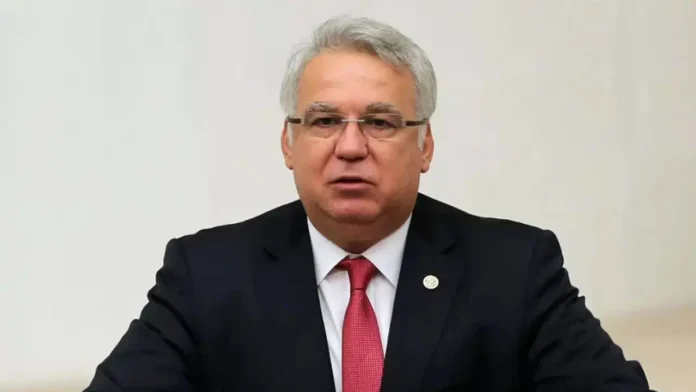A former lawmaker from Turkey’s ruling Justice and Development Party (AKP) who was detained on Tuesday morning after publicly accusing the party of patronage and criticizing President Recep Tayyip Erdoğan for a crackdown on his rivals and critics was arrested later in the day, Turkish Minute reported.
Hüseyin Kocabıyık, who served in parliament for two terms before his expulsion from the party in March, said on X that he had been taken into custody.
Journalist İsmail Saymaz reported that the detention was part of an investigation into alleged insults against the president. Police also searched his home, according to Saymaz.
Saymaz announced later on Tuesday on his X account that the politician has been arrested.
Kocabıyık’s arrest came after an interview published in the Cumhuriyet daily on Monday in which he described the AKP as a network of favoritism and patronage, where party members and their families received government positions or benefits in exchange for loyalty, leaving no space for dissent.
“Everyone has been caught in a relationship of interest with the state, someone’s wife, daughter, son, son-in-law, grandchild. The AKP gives something to everyone,” he said.
“They gave to me as well, and when I objected to certain things, they took it back.”
He said his wife, Funda Kocabıyık, was appointed governor of Uşak province in western Turkey before being removed and reassigned to the Interior Ministry.
Funda Kocabıyık served as governor between 2018 and 2022 until her husband began to publicly criticize the AKP due to the arrest of people in politically motivated trials.
However, Kocabıyık’s expulsion from the AKP came after he strongly criticized the detention of İstanbul Mayor Ekrem İmamoğlu on March 19. İmamoğlu, seen as the strongest political rival of President Recep Tayyip Erdoğan and named his Republican People’s Party’s (CHP) presidential candidate for the next election, was arrested on March 23 on corruption charges, widely seen as politically motivated.
At the time he described İmamoğlu’s detention as “a coup” Erdoğan staged against himself.
“Recep Tayyip Erdoğan… is this the place of the future? Did we struggle for this? Is this why we were dragged through the courts for years? You actually staged a coup against yourself, and you don’t even realize it!” he tweeted, recalling his close ties to Erdoğan in the early years of his political career.
Kocabıyık repeated his criticism in the Cumhuriyet interview in which he compared İmamoğlu’s imprisonment to the jailing of Erdoğan in 1998 for reciting a poem.
“If you use state power and the judiciary to silence your rival, that is also a coup,” Kocabıyık said, calling İmamoğlu’s detention a political intervention aimed at eliminating a political rival.
Erdoğan, who was the mayor of İstanbul at the time, was convicted of inciting religious hatred and banned from politics after reciting a poem that compared mosques to barracks and the faithful to an army. He was released from prison in 1999 and formed the AKP, abandoning openly Islamist policies.
Kocabıyık also said Erdoğan had changed drastically since his early political years. “Back then he was a gentleman, merciful and a friend to the poor. Now I no longer recognize him,” he told Cumhuriyet.
Mustafa Yeneroğlu, an independent lawmaker who had also served in the AKP ranks in the past, criticized Kocabıyık’s detention as “shocking,” recalling his past support for Erdoğan in “his most difficult times.”
“Today, AKP members who remain silent must see where this country is heading,” he said on X, calling for the politician’s immediate release.
Kocabıyık’s criticism is rare for a politician who served in the AKP for many years. Erdoğan has long been accused by his critics of having established one-man rule in the country, destroying the separation of powers, silencing dissent and establishing a system in which those loyal to him are rewarded.
Thousands of people in Turkey are investigated, prosecuted and convicted on charges of insulting the president on the basis of the controversial Article 299 of the Turkish Penal Code (TCK). The crime carries up to four years in prison, a sentence that can be increased if the act was committed using the mass media.















